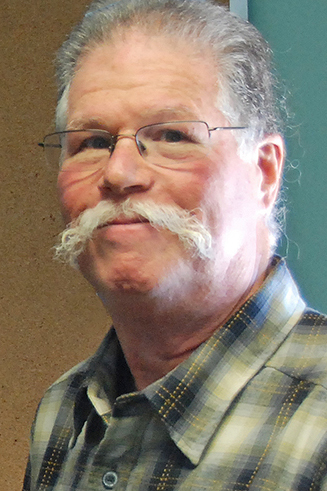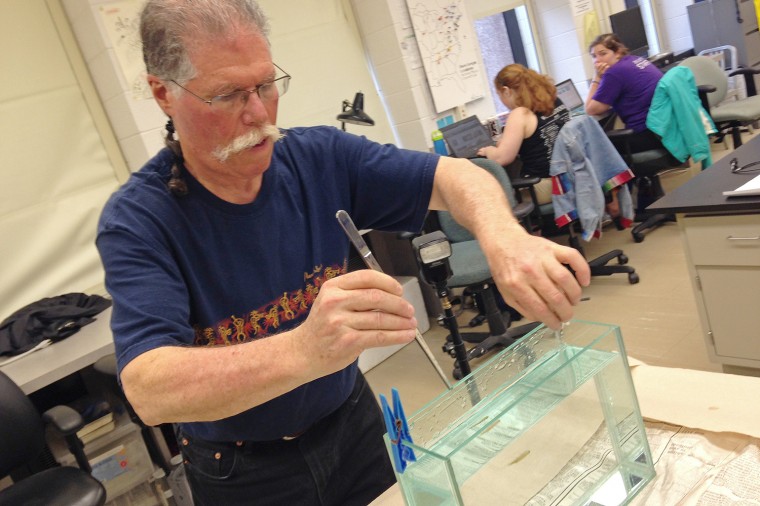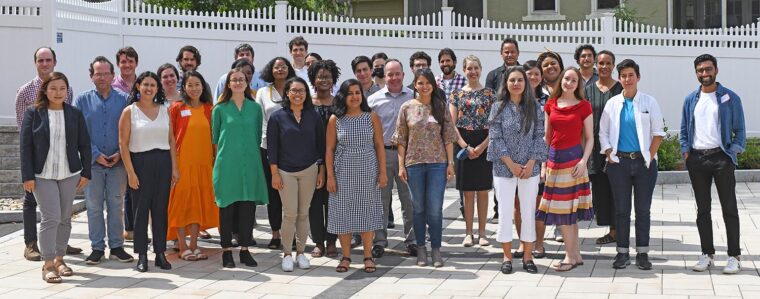As organisms evolve over time, changes in size—both miniaturization and gigantism—are a major theme. In fish, which are the specialty of Barry Chernoff, the Robert Schumann Professor of Environmental Studies, Professor of Biology and of Earth & Environmental Sciences, miniaturization happens in many lineages, though it’s not very common. Evolutionary biology has long held that this miniaturization is often accompanied by developmental simplification or paedomorphisis (becoming sexually mature while appearing juvenile-like). Last March, just before the pandemic began, Chernoff and students in his Tropical Ecology course (ENVS/Bio/E&ES 306) took a trip to the University of Michigan in Ann Arbor, Mich.,…
A new species of fish discovered in Brazil was recently named in honor of Wesleyan Professor Barry Chernoff. Scientists encountered the Bryconops chernoffi in Rio Ipixuna—a small tributary of the Rio Maicuru, which feeds into the lower Amazon River in Pará, Brazil. Samples of the fish were collected by researchers on four trips in 2014–15, and in March 2019, Zootaxa released an article describing the new species. Chernoff, the Robert Schumann Professor of Environmental Studies, focuses his research on freshwater fishes in North America and the Neotropical region, primarily those in South America in the Amazon. He's also professor of earth and environmental…
Barry Chernoff, director of the College of the Environment, was one of eight scientists recently honored with a new musical composition based upon his research—part of a concert and album titled "The Sound of Science, performed in New York City on Nov. 10. The project aims to build "bridges between the musical and scientific worlds, celebrating their shared culture of inquiry," according to the website. The pieces were written by seven celebrated composers for amplified cello and electronics, and were all recorded and performed by world-renowned cellist Jeffrey Zeigler, longtime member of Kronos Quartet and several other groups. The Grammy…
(more…)
Barry Chernoff and Dana Royer are the co-authors of "Diversity in neotropical wet forests during the Cenozoic linked more to atmospheric CO2 than temperature," published in the Proceedings of the Royal Society, B, in 2013. Proceedings B is the Royal Society's flagship biological research journal, dedicated to the rapid publication and broad dissemination of high-quality research papers, reviews and comment and reply papers. The scope of the journal is diverse and is especially strong in organismal biology. Chernoff is the director of the College of the Environment, the Robert Schumann Professor of Environmental Studies, professor of biology, professor of earth…
Barry Chernoff, the Robert Schumann Professor of Environmental Studies, professor of biology, chair of the Environmental Studies Program and director of the College of the Environment, received a $13,000 grant from The Nature Conservancy for his research titled “Fish and Benthic Invertebrate Assemblages-Zemko Dam.” The grant expires Aug. 15, 2011.
Barry Chernoff, chair of the Environmental Studies Program, the Robert Schumann Professor of Environmental Studies; director of the Environmental Studies Certificate Program, professor of biology, received an $800,000 award from The Andrew Mellon Foundation to support the College of the Environment. The grant, awarded on June 25, will support the COE for four years.
Barry Chernoff, the Robert Schumann Professor of Environmental Studies, professor of earth and environmental sciences, professor of biology and director of the Environmental Studies Certificate Program, is the co-author of "A new species of suckermouth armored catfish, Pseudancistrus kwinti (Siluriformes: Loricariidae) from the Copename River drainage, Central Suriname Nature Reserve, Suriname," published in Zootaxa 2332:40-48, 2010.
Ron Kuivila, chair of music, and Barry Chernoff, professor of biology and Robert Schumann Professor of Environmental Studies, were featured on WNPR recently regarding a musical installation called "The Weather at Six" which is part of the Feet to the Fire project. The Weather at Six uses the Wesleyan carillon for' a sonic interpretation of the weather of the last 130 years and is designed to get people to think about global warming.'
Barry Chernoff, professor of biology, Robert Schumann Professor of Environmental Studies, director of the environmental studies certificate program, received a $6,950 renewal award to support his continued research of Fish and Benthic Invertebrate Assemblages-Zemko Dam from the Nature Conservancy.
This fall, Wesleyan welcomes 43 new faculty to campus of which 24 are ongoing members of the campus community. Fourteen are tenure-track, eight are professors of the practice, two are adjunct, and 19 are visiting (read about the new visiting faculty in this story). In addition, two new members of the Wesleyan faculty are graduates of Wesleyan. Wesleyan's new scholar-teachers bring diverse skills, passions, and research interests to the university including Indian sectarian violence, costume design, animal behavior and neurophysiology, Japanese pedagogy, post-structural semiotics, structural inequalities in education, digital media analysis, and more. Bios of the new, ongoing faculty are…





